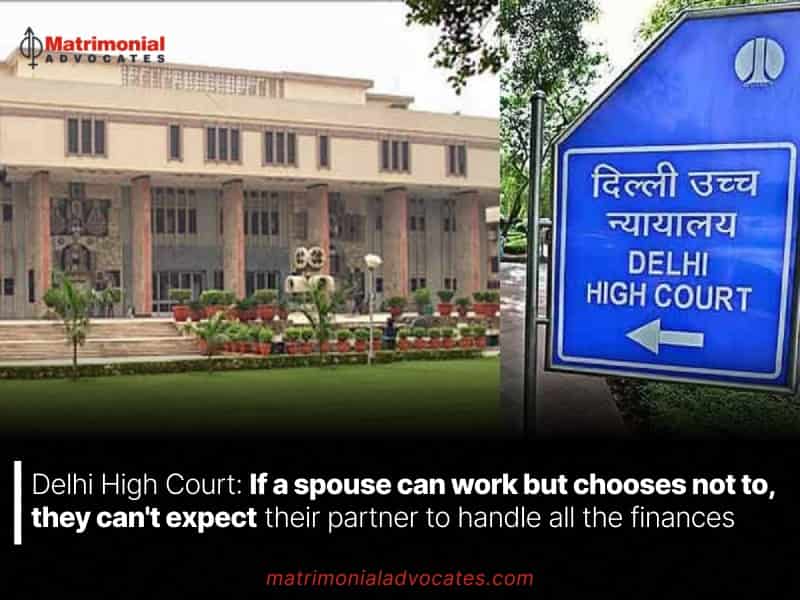
The Court also noted that the provision for maintenance during the pendency of proceedings under the Hindu Marriage Act (HMA) is gender neutral, meaning that both wife or husband can seek relief under it.
In a session convened on Tuesday, the Delhi High Court articulated a foundational legal principle: wherein a spouse possesses viable employable skills but voluntarily opts for unemployment without adequate justification, such a party should be precluded from unilaterally imposing financial obligations, notably in the form of maintenance, upon the other spouse. This judicial pronouncement, rendered by Justices V Kameswar Rao and Anoop Kumar Mendiratta, emanated from the court’s careful scrutiny and subsequent adjustment of the maintenance award previously granted by a family court to the wife. The adjudication is contextualized within the overarching framework of an extant divorce proceeding initiated by the husband.
“The spouse having a reasonable capacity of earning but who chooses to remain unemployed and idle without any sufficient explanation or indicating sincere efforts to gain employment should not be permitted to saddle the other party with one sided responsibility of meeting out the expenses,” the bench said.
The court underscored that the computation of maintenance need not be rigidly confined to mathematical precision but should, instead, be oriented towards providing sustenance to a spouse incapable of independent financial sustenance throughout the pendency of legal proceedings. Furthermore, the court emphasized the gender-neutral applicability of maintenance provisions delineated in Sections 24 and 25 of the Hindu Marriage Act (HMA), which expound upon the respective entitlements, responsibilities, and obligations within the conjugal alliance.
In the specific case adjudicated by the High Court, the appellant (husband) contested an order mandating a monthly disbursement of ₹30,000 to the respondent (wife) during the ongoing divorce proceedings. The legal representative for the appellant argued that a prior order under the Protection of Women from Domestic Violence Act had stipulated a monthly payment of ₹21,000, subsequently escalated to ₹30,000 within the purview of HMA proceedings. Citing financial constraints, the appellant disclosed that the respondent, a graduate of Delhi University, had hitherto earned ₹25,000 in her capacity as a hospital receptionist.
The court was apprised of the appellant’s obligations towards supporting siblings, a brother, and elderly parents, as well as repaying a loan incurred for his brother’s matrimonial expenses. Conversely, the respondent’s counsel contended that she did not receive remuneration in her current hospital engagement, characterizing her role as that of a voluntary social worker.
Following a comprehensive evaluation of submissions and financial records, the court ascertained that the appellant’s net income, post-deductions and recoveries, amounted to ₹56,492. Furthermore, the court observed a dearth of elucidation by the Family Court regarding the rationale for the augmented maintenance award to the respondent during the divorce proceedings.
In consideration of the appellant’s protracted familial obligations antedating the legal dispute, coupled with the absence of evidentiary substantiation indicating that the financial deductions from his income were exclusively attributable to the litigation, the court rendered its decision.
With regard to the wife’s capacity to earn, the Court said she has a reasonable educational background from Delhi University but “appears to have voluntarily undertaken social work as claimed despite there being no impediment for undertaking a meaningful employment.”Top of Form
Consequently, the Court determined a decrease in the monthly financial commitment for the husband, reducing it from ₹30,000 to ₹21,000. Furthermore, an annual increment of ₹1,500 was mandated to align with the escalation in prices and expenses. Advocating on behalf of the husband were attorneys Aditya Gaur and Krishan Bhardwaj, while the wife was represented by a legal team consisting of Sachin Bansal, Arti Sharma, Sakshi Mahajan, and Gaurav Chauhan.





